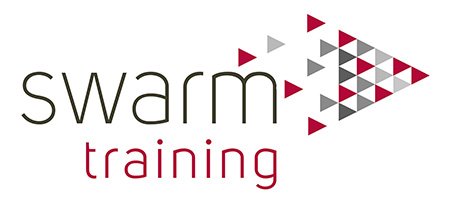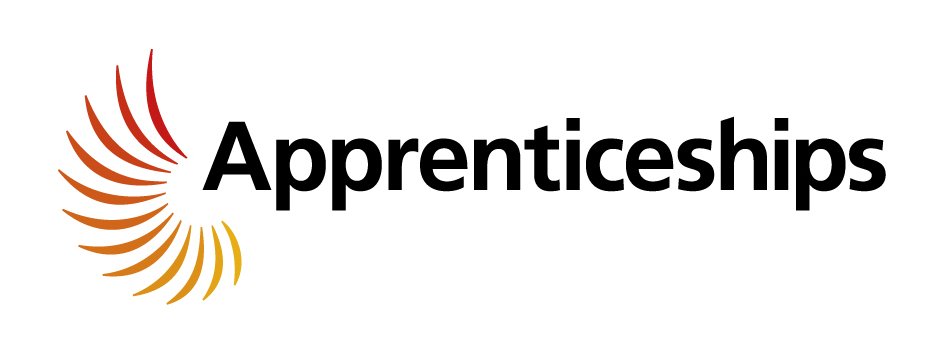
What is an apprenticeship?
-
Apprenticeships are for ambitious people of all ages who want to earn while they learn, gaining real skills and knowledge. They offer employers the opportunity to strengthen and diversify their workforce providing a future talent pipeline tailored to business needs.
An apprenticeship is primarily a job and comes with substantial training and the development of transferable skills, which is beneficial to the employer and the employee. Most of the training is on-the-job working with a mentor, to learn job specific skills in the workplace. Off-the-job training will depend on the occupational area, the training organisation and the requirements and wishes of the employer.
Apprenticeships are available in 1500 occupations across 170 industries to businesses of all sizes, lasting between 12 months and five years.
-
Apprentices bring enthusiasm and a fresh perspective, so it’s no surprise that 89% of employers say they make their business more productive. With the expansion of higher and degree apprenticeships businesses can now access the higher-level technical skills vital to business performance and growth.
Apprenticeships also bring opportunity; to attract new talent, offer progression and develop a motivated, skilled and qualified workforce. They can also help lower recruitment costs, 75% of apprentice employers have found this to be the case and 80% say that apprenticeships will play a bigger part in their future recruitment plans.
-
Apprentices are aged 16 or over and combine real employment with studying for a work-based qualification - from GCSEs or equivalent up to degree level.
Apprentices can be new or current employees, but they must usually work for at least 30 paid hours a week and must work more than 16.
You must pay your apprentice for time spent training or studying for a relevant qualification, whether while at work or at a college or training organisation.
You must offer apprentices the same conditions as other employees working at similar grades or in similar roles. This includes:
Paid holidays.
Sick pay.
Any benefits you offer, e.g. childcare voucher schemes.
Any support you offer, e.g. coaching or mentoring.
You must pay the apprentice at least the minimum wage during their placement.
What is End Point Assessment?
-
When an apprentice reaches the end of their training journey, we work with their employer to thoroughly review all the gained knowledge, skills and behaviours and make sure all components such as Maths and English have been achieved. We then mutually agree if the apprentice is ready to move onto a process known as End Point Assessment. This review is known as the “gateway”. Only when both Swarm and the employer agree that the apprentice is 100% ready, they then take steps to get them ready for an external and independent process called End Point Assessment.
Each apprenticeship standard has an employer designed synoptic end-point assessment and what’s involved carries across different standards. It is separate to any qualifications or other assessment that the apprentice may undertake during our training and the apprentice will not be able to achieve the apprenticeship without passing the End Point Assessment.
End Point Assessment can take many forms but it’s always done by an external independent organisation that is listed on the Register of Apprentice Assessment Organisations. This can normally take 1-3 days depending on the standard and normally be a mixture of 3-4 different types of assessments. Below we give examples of some of the types of assessments you can expect.
-
Each part of the End Point Assessment has a weighted percentage attached to it and an overall pass mark is normally a combined percentage that grades you between:
Pass
Merit
Distinction
Fail
-
Tests and Examination
Normally this is an electronic exam that tests scenarios, questions and responses of the apprentice. The test itself sometimes is multiple choice but depends on the standard and what level the learner is doing.
Don't Worry, Swarm will do trial runs and mock tests way before this happens.
Portfolio of Work
The completed learning portfolio will be assessed by the Independent Assessor who makes their own judgement on the quality of the work. It will comprise of a collection of evidence (preferably in an online portfolio with written, audio and video evidence).
Don't worry, we will have created one with your help throughout the apprenticeship.
Presentation
Sometimes a presentation is required when a project has been completed as part of the apprenticeship standard. Depending on the apprenticeship and its level, this presentation can be either electronically presented or in person to a panel. Sometimes there is a Q&A (Question and Answer session) involved if you are presenting to a panel.
This can be daunting but Swarm invests in professional support to give each learner lots of advanced presentation training and practice runs.
Interview/Discussion
Depending on the standard, knowledge and competency is sometimes assessed via an interview with an EPA assessor. The interview is usually conducted using a range of media (telephone interview, live media, online or written), whichever is the most appropriate for the standard and the apprentice.
Don't worry, Swarm invests in professional support to give each learner lots of interview training and practice .


